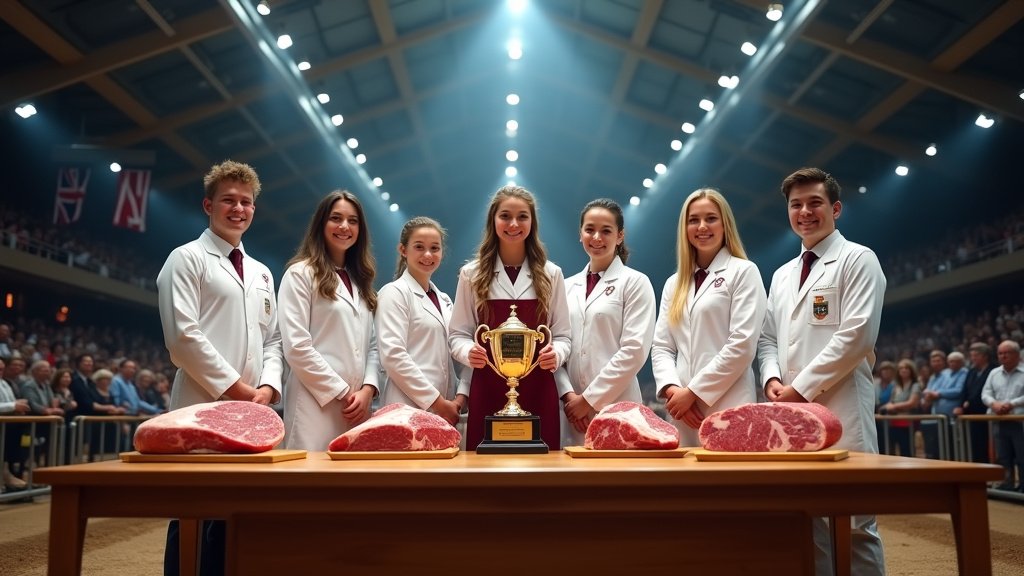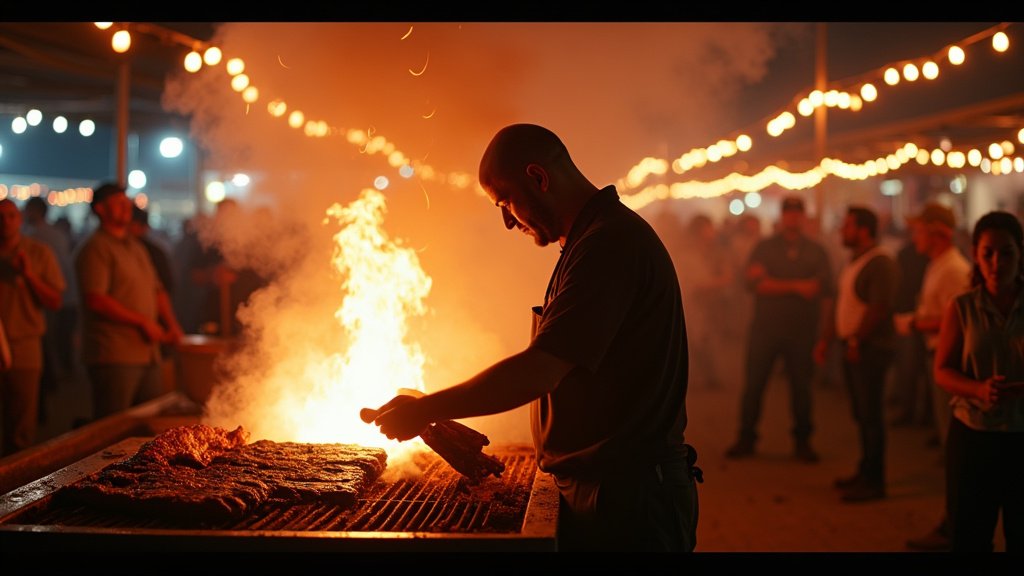Texas A&M University secured victory at the Australian Inter-Collegiate Meat Judging Competition in 2025, outperforming all other participating institutions. The team’s comprehensive performance led to a decisive win, finishing 15 points ahead of the University of Queensland. This year’s competition was held in Wagga Wagga and concluded over the weekend. The win marks a significant achievement for the university, solidifying its reputation in the field of agricultural science.
Team and Individual Achievements
The Texas A&M winning team comprised Bryce Borchardt, Harper Parson, Grace Real, and Taylor Colvin. A standout performance by Grace Real earned her the title of Overall Champion Individual. Real’s score of 1146 points out of a possible 1250 underscored her expertise and precision in meat judging. Kathryn Fisher from the University of Queensland secured the runner-up position, demonstrating a strong performance throughout the competition. The competition showcased the skills and knowledge of students from various institutions, with each team striving for excellence in meat science.
Competition Highlights
The Inter-Collegiate Meat Judging Competition is an integral part of the ICMJ National Conference. The conference, which takes place annually in July, is hosted at Charles Sturt University and Teys Australia. The competition provides a platform for students to demonstrate their understanding of meat quality, grading, and evaluation. The competition involves evaluating various aspects of meat, including carcass and cut identification, judging, and assessment of quality attributes. Participants are challenged to apply their knowledge in practical scenarios, contributing to their professional development in the meat industry.
University of Queensland’s Performance
The University of Queensland team, consisting of Piper Christensen, Kathryn Fisher, Will Lawrence, and Andrew Thomson, demonstrated remarkable skills. Their team excelled in specific categories, including retail cuts, saleable item identification, and pork judging classes. Despite their notable achievements, the UQ team placed second overall. This marks the fourth consecutive year that the University of Queensland team has placed second in the competition, a testament to their consistent high performance and dedication to the field.
Historical Context and Significance
This victory by Texas A&M University marks the second consecutive year that a team from the United States has claimed the top prize. This streak highlights the growing influence of North American institutions in meat judging. The competition’s history reflects a commitment to fostering excellence in agricultural education. The competition not only tests students’ skills but also provides a valuable opportunity to network with industry professionals. The skills and knowledge gained through this competition contribute significantly to the future of the meat industry, ensuring a knowledgeable and skilled workforce.
Wagga Wagga Event
The choice of Wagga Wagga as the competition’s location provided a suitable environment for participants. The city’s agricultural significance added context to the event. The weekend’s culmination of events provided a platform for students to display their skills, network with industry leaders, and compete for the coveted title. The event’s format allows participants to be assessed across several critical judging areas. The competition aims to enhance the quality and standards of meat judging, and encourages the development of practical expertise. Participants hone their abilities in identifying meat cuts, evaluating their quality, and understanding the grading procedures. The environment enables competitors to network with professionals from various sectors of the meat industry, aiding them in their career development.
The Broader Impact
The success of Texas A&M in the Australian Inter-Collegiate Meat Judging Competition underscores the significance of agricultural education and the vital role it plays in global food production. The competition itself serves as a pivotal event, enabling students to refine their skills and establish connections within the industry. The competition’s emphasis on rigorous evaluation and practical application reflects the dynamic nature of the meat industry. The ICMJ National Conference and its associated competition continue to be essential platforms for promoting expertise and innovation in the field. This victory underscores the importance of this kind of competition in nurturing future leaders within the meat industry. The success of the competing universities, and the dedication of all participants, contributes to the advancement of standards in the meat industry.






